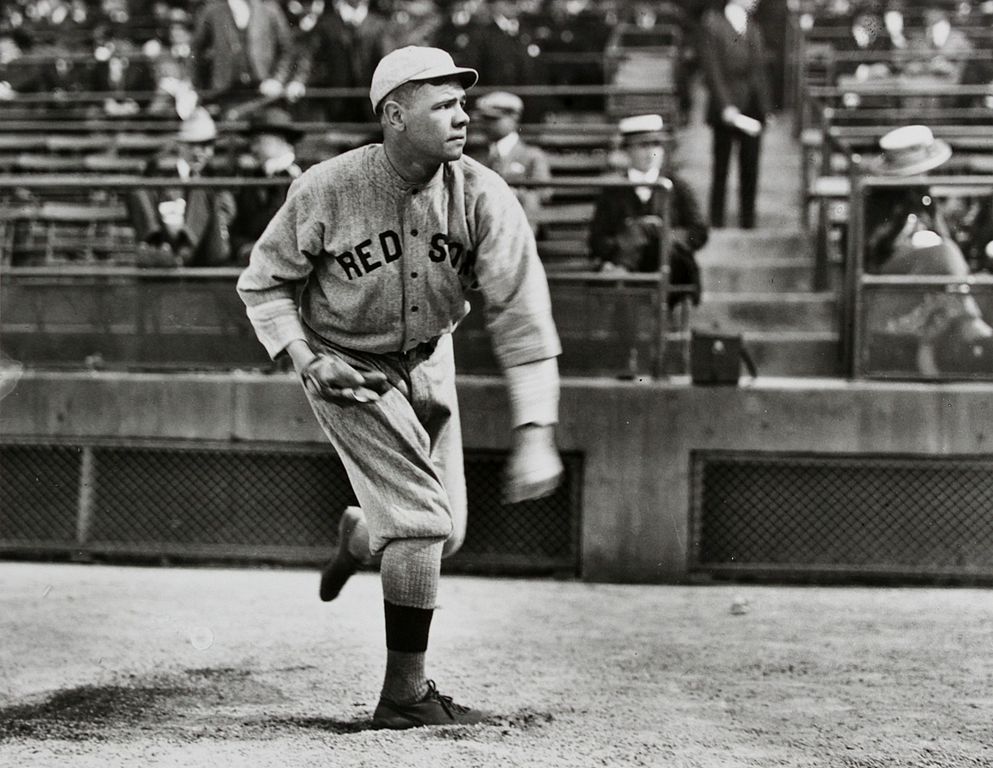Oldest Companies in the World, the Other Siberia, and How Babe Ruth Changed Baseball

Good morning. Kenny Rogers has died. He was 81.
In praise of Middlemarch: “For years, my great white whale was Middlemarch. I do not know why I found it so difficult to crack open. It has a large cast of characters to keep up with, but it is not as populous as a Dickens novel; there’s a bit of Big Sweeping Historical Background there — the Reform Act of 1832 — but, like Vanity Fair, it is basically a domestic novel into which history occasionally intrudes. I suppose I have some trouble dropping myself into English provincial life in the early 19th century — I barely made it through The Mayor of Casterbridge in spite of having the best Hardy professor you could ask for. I finally got around to starting it on one of those very fun cruises National Review organizes. And I regret having waited so long: It may be the best novel I have ever read.”
How Babe Ruth changed baseball: “When the Boston Red Sox arrived in Hot Springs, Arkansas, for spring training in 1918, new manager Ed Barrow expected that Babe Ruth would serve almost exclusively as a pitcher. Yet with a roster decimated by the draft, Barrow desperately needed hitters, and Ruth was ready to fill the void.”
The oldest companies in the world mapped. “Located in the walls of St Peter’s Abbey in Salzburg, St. Peter Stifts Kulinarium opened in 803 and remains the oldest restaurant in Europe that you can still eat in. The inn is rumoured to have served Christopher Columbus, Johann Georg Faust, and Wolfgang Amadeus Mozart.”
Waterstones closes stores: “Waterstones has said it will close its 280 UK branches from Monday, hours after its chief executive said the bookstore chain was ‘no different to a supermarket or a pharmacy” and would stay open during the coronavirus shutdown.’”
Wynn Wheldon writes that Tom Stoppard’s latest play is a “masterpiece”: “Tom Stoppard’s new play, Leopoldstadt, which recently opened at Wyndham’s Theatre in London, concerns the fates of two haute bourgeois Viennese families in the period from 1899 to 1955. As the play opens, there are 16 characters on stage, almost all of them Jewish. At the close, there are three.”
Another Siberia: “Cold, cruel, impenetrable, abandoned, scored with desperate romance and ill-fated rebellions: modern perceptions of Siberia remain a study in cliché, the everyday bypassed in favor of the sensational . . . But what do we really know about this vast blank space on our maps, and the people who inhabit it?”
Essay of the Day:
In The New Criterion, James Panero reports on New York’s neglected Soldiers’ and Sailors’ Monument:
“Just down the street from my apartment, on the West Side of Manhattan, is a memorial of memorials. The Soldiers’ and Sailors’ Monument, at Riverside Drive and Eighty-ninth Street, is one of those veterans of the city landscape that has waged a long war against the forces of ruin. Now, once again, the monument finds itself in a pitched battle over its own survival. The mortar of the structure has eroded away. Rainwater runs through its marble interior. Metal flashing dangles off its cornices. Weeds grow out of its cracked façade. A chain-link fence surrounds the memorial tower and invites further mischief. Young men dash around the enclosure to deface the stonework—something I saw firsthand walking by the other afternoon. They know they have it to themselves.”
Photos: Utah
Receive Prufrock in your inbox every weekday morning. Subscribe here.